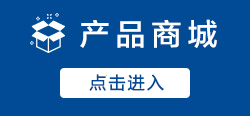| Species |
Human |
| Protein Construction |
ICOS (Glu21-Phe141)
Accession # Q9Y6W8 |
hFc |
| N-term |
C-term |
|
| Purity |
> 90% as analyzed by SDS-PAGE |
| Endotoxin Level |
< 0.2 EU/μg of protein by gel clotting method |
| Expression System |
HEK 293 |
| Apparent Molecular Weight |
~50.5 kDa, on SDS-PAGE under reducing conditions. |
| Formulation |
Lyophilized from a 0.2 μm filtered solution in PBS. |
| Reconstitution |
It is recommended that this vial be briefly centrifuged prior to opening to bring the contents to the bottom. Reconstitute the lyophilized powder in ddH₂O or PBS up to 100 μg/ml. |
| Storage & Stability |
Upon receiving, this product remains stable for up to 6 months at lower than -70°C. Upon reconstitution, the product should be stable for up to 1 week at 4°C or up to 3 months at -20°C. For long term storage it is recommended that a carrier protein (example 0.1% BSA) be added. Avoid repeated freeze-thaw cycles. |
| Target Background |
Inducible T-cell costimulator is an immune checkpoint protein that in humans is encoded by the ICOS gene. CD278 or ICOS (Inducible T-cell COStimulator) is a CD28-superfamily costimulatory molecule that is expressed on activated T cells. It is thought to be important for Th2 cells in particular. The protein encoded by this gene belongs to the CD28 and CTLA-4 cell-surface receptor family. It forms homodimers and plays an important role in cell-cell signaling, immune responses and regulation of cell proliferation. |
| Synonyms |
AILIM; CD278; CVID1; inducible T-cell co-stimulator; inducible T-cell costimulator; inducible T cell costimulator |
���� ������� For laboratory research use only. Direct human use, including taking orally and injection and clinical use are forbidden.

































